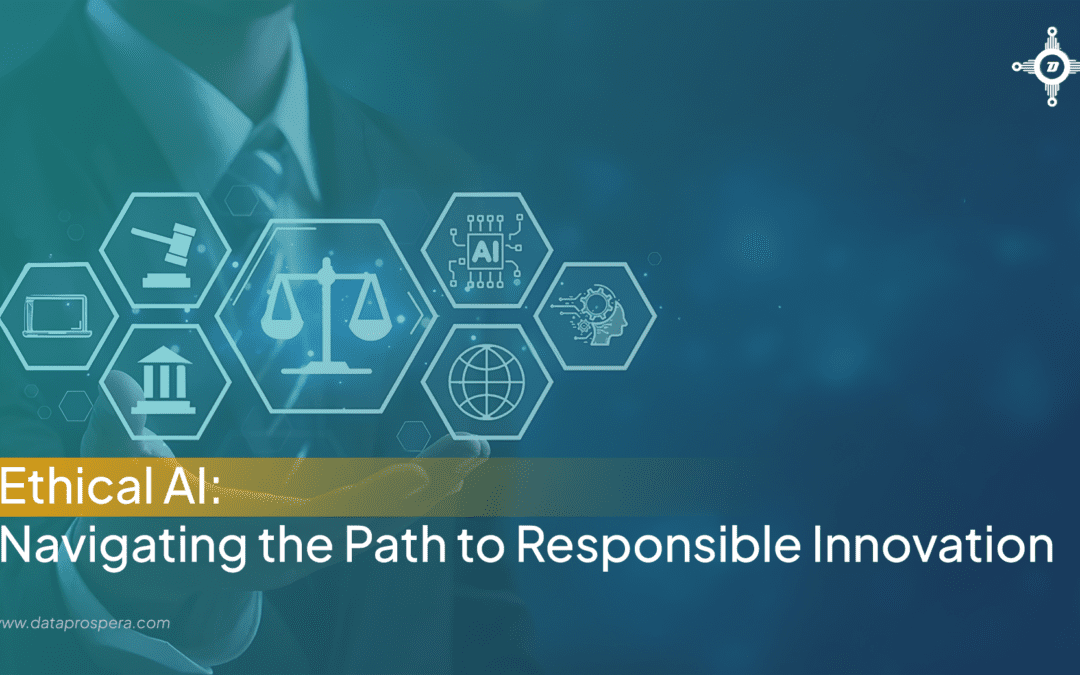As artificial intelligence (AI) continues to transform industries and reshape society, the importance of developing and implementing AI systems ethically has never been more crucial. Ethical AI ensures that these powerful technologies serve humanity responsibly, avoiding harm while promoting fairness, transparency, and accountability. This blog explores the key principles, challenges, and solutions in creating and deploying ethical AI.
What is Ethical AI?
Ethical AI refers to the practice of designing, developing, and deploying AI systems in ways that align with societal values and ethical principles. It prioritizes fairness, privacy, transparency, and accountability while mitigating biases and unintended consequences.
Key Principles of Ethical AI:
- Fairness: Ethical AI systems should not perpetuate or amplify discrimination or bias.
- Transparency: AI decision-making processes should be explainable and understandable to users.
- Privacy: Users’ data must be protected and used responsibly.
- Accountability: Organizations must take responsibility for the impacts of their ethical AI systems.
Learn more about the principles of Ethical AI.
Challenges in Achieving Ethical AI
Despite its importance, implementing ethical AI comes with several challenges:
- Bias in AI Algorithms
- AI models often inherit biases from the data they are trained on, leading to unfair outcomes.
- Example: Facial recognition systems that perform poorly on certain demographics due to biased training data. Learn more about bias in AI.
- Lack of Transparency
- Complex AI models, especially neural networks, often function as “black boxes,” making it difficult to understand how decisions are made.
- Privacy Concerns
- The collection and use of vast amounts of data for AI training raise significant privacy issues, particularly with sensitive personal information. Explore AI and privacy.
- Accountability Gaps
- Determining who is responsible for AI-related harms—developers, users, or organizations—can be ambiguous.
Building Ethical AI: Best Practices
To address these challenges, organizations must adopt best practices in AI development:
- Bias Mitigation
- Regularly audit training data for biases.
- Use diverse datasets to ensure inclusivity.
- Employ fairness-aware algorithms.
- Transparency and Explainability
- Develop models that allow stakeholders to understand AI decision-making.
- Provide clear documentation and explanations for AI behavior.
- Privacy by Design
- Integrate privacy protections into AI systems from the outset.
- Use techniques like data anonymization and differential privacy.
- Robust Governance Frameworks
- Establish ethical review boards to oversee AI projects.
- Develop guidelines and policies for ethical AI use.
- Promote continuous monitoring and accountability.
Real-World Examples of Ethical AI in Action
- Healthcare Ethical AI
- An AI system designed to diagnose diseases must ensure equitable accuracy across all demographics.
- Example: An AI-based diagnostic tool audited its performance to eliminate biases affecting underrepresented groups.
- Ethical AI in Hiring
- Organizations are leveraging AI for recruitment while ensuring algorithms do not discriminate based on gender, race, or other protected characteristics.
- Example: A company used bias-detection tools to refine its AI hiring system.
- Sustainable Development Goals (SDGs)
- Ethical AI is being used to address global challenges like poverty, education, and climate change while ensuring fair and equitable solutions.
The Future of Ethical AI
As AI technologies continue to evolve, the demand for ethical frameworks will only grow. Collaborative efforts among governments, organizations, and academia are essential to establish global standards for ethical AI. Initiatives like AI ethics certifications, international guidelines, and interdisciplinary research will shape the future of responsible AI innovation.
Final Thoughts
Ethical AI is not just a moral imperative—it is a strategic necessity for building trust, driving innovation, and ensuring sustainable growth in the AI era. By prioritizing fairness, transparency, and accountability, organizations can harness the transformative power of ethical AI responsibly.
Ready to explore how ethical AI can benefit your business? Contact Data Prospera today to learn how we can help you implement AI solutions that align with your values and goals.
Meta Description: Discover the principles, challenges, and best practices for ethical AI. Learn how fairness, transparency, and accountability are shaping responsible AI innovation. Explore solutions for implementing responsible AI systems today.


Recent Comments